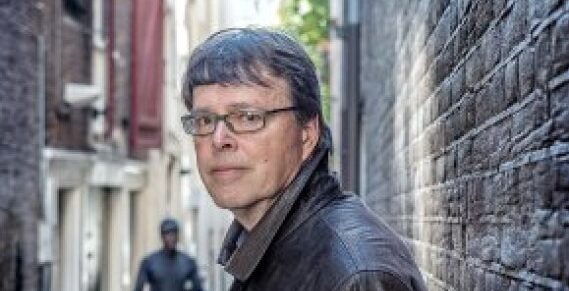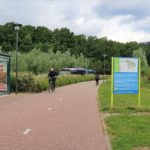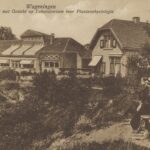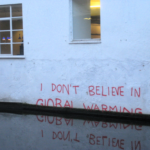Text: Janno Lanjouw
At a seminar entitled When wizards meet prophets, WUR hopes to reconcile the conflicting world views of techno-optimists and strict ecologists. The guest of honour is the American writer Charles C. Mann, who wrote a book about this ideological conflict. Does he himself believe the gulf can be bridged?
‘How will we feed the world in 2050?’ Anyone hearing this question who’s been involved in the food supply debate for a while will resign themselves to a new outbreak of trench warfare. Traditionally, the two sides are made up of ‘believers in technology’ and ‘believers in nature’. In other words: can we innovate our way out of our problems, or are we at last going to listen to what nature is trying to make clear to us?
Book: The Wizard and the Prophet
The American historian and science journalist Charles C. Mann wrote a well-received book juxtaposing these world views: The Wizard and the Prophet.
The ‘wizard’ of the title is Norman Borlaug, the American agronomist who did research on high-yield grain varieties in the 1940s and 50s. With a smart combination of good quality seed, artificial fertilizer, pesticides, technology and irrigation, he succeeded in doubling or tripling harvests. This made Borlaug the ideological father of the Green Revolution – the process of agricultural intensification that took off after World War II.
The ‘prophet’ in question is William Vogt, a less famous but influential contemporary of Borlaug’s. He was one of the first to apply the concept of carrying capacity, which originated in biology, to the earth in its entirety. This proved a cast-iron way of showing that humanity’s insatiable hunger for more is doing irreversible damage to the planet. Or at least, so much damage that it will no longer be habitable for humans. Vogt’s answer: instead of applying technical know-how, take a better look at what the ecology that humanity is so dependent on needs. So Vogt’s ideas laid the foundations for the modern environmental movement.
The divide Mann describes pervades society and is reflected in today’s scientific debates. At a seminar of 29 March, WUR wants to look for a new narrative that is free of this dichotomy (see inset). The author himself will be present. Resource has already talked to him on Skype.
Is it possible to reconcile the world views of ‘wizards’ and ‘prophets’?

‘That will be very difficult; they really are opposites. But there are common denominators. Not least, the fact that prophets and wizards both believe that we can solve the problems we have caused. That doesn’t go without saying. Besides the ‘wizards’ and ‘prophets’, I also talk in my book about the vision of the American molecular biologist Lynn Margulis. She declared that the current dominant position of humans is nothing new; it has happened before that a single species dominated the earth, and without exception, those species all caused their own downfall. Margulis saw this as a law of nature, and she accepted it, but not many people will agree with her on that. Most people think we hold our fate in our hands and must do something. But what we should do is a question on which opinions differ widely.’
Shouldn’t we just make a decision? Go all out for technology, or for a natural approach?
‘Yes, but which one then? I have described the two teams, but that doesn’t mean I have a crystal ball with which I can see into the future. What I do flag up is that a lot of energy is wasted on arguing amongst ourselves, which we really don’t have time for. The food crisis is just one of the problems. In my book I also go into the climate crisis, the energy crisis, the water crisis… They all need to be solved fast, one way or another.’
Are there people who have successfully synthesized the two world views?
Mann is quiet for a moment. ‘To be honest, I can’t think of anyone right off the top of my head.’ Then he adds: ‘The people who come to mind are mainly those who manage landscapes. Forest managers, for instance. They operate in new ecosystems that have been influenced a lot by people. They have been through higher education but they do practical work every day. Or they’ve been managing landscapes for generations, like some of the indigenous peoples here in the US. They use both their traditional knowledge and the latest technology to limit the impact of human intervention on ecosystems.’
What role can WUR play?
Laughing: ‘I would love it if someone stood up and said I’ve got it all wrong, and that my model is not a good representation of the debate. But then that person does have to come up with an alternative with which we can do better at tackling the problems. That would be wonderful.’
What would make the symposium a success for you?
Lachend: ‘Ik zou het heel fijn vinden als er iemand opstaat en zegt dat ik er helemaal naast zit en dat mijn model geen goede representatie is van de discussie. Maar dan moet diegene wél met een alternatief komen dat ons beter in staat stelt de problemen het hoofd te bieden. Dat zou prachtig zijn!’
When wizards meet prophets
A new perspective which brings together respect for nature and technological innovation. That is the goal of the seminar When wizards meet prophets that takes place in Impulse on 29 March. As well as Charles Mann, speakers will include WUR President Louise Fresco, Jan Willem Erisman of the Louis Bolk Institute and several WUR scientists. See wur.eu/wizards-prophets.

 Photo: Patrick Post/Hollandse Hoogte
Photo: Patrick Post/Hollandse Hoogte 

